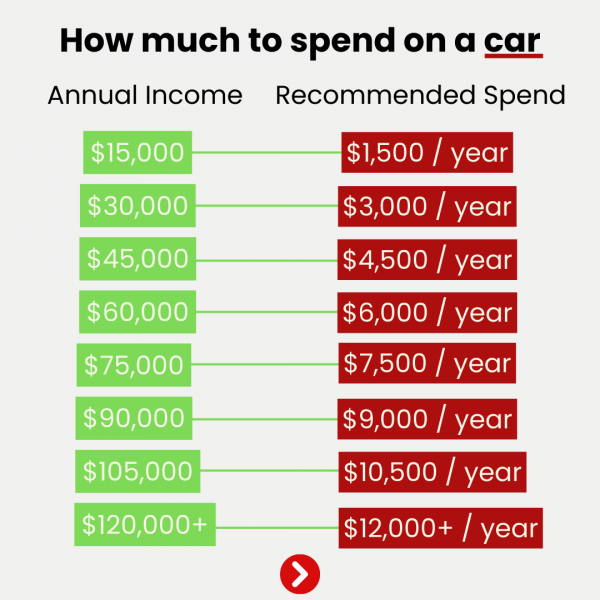Financing a Car in Ontario: Eveything You Need to Know
Buying a car is a significant decision, and for most people, it requires financing. Financing a car means taking out a loan to pay for the vehicle and then paying back that loan over time, usually with interest.
If you’re in Ontario and considering financing a car, here’s a straightforward guide to help you understand the process.
Understanding Car Financing
Car financing involves borrowing money from a lender, such as a bank or a car dealership, to purchase a car.
The amount you borrow is called the principal, and you’ll repay this amount plus interest over a set period, typically between three to seven years.
Step-by-Step Guide to Financing a Car
Determine Your Budget
- Assess Your Finances: Look at your income, expenses, and savings. Determine how much you can afford to pay monthly for car financing on Ontario without straining your finances.
- Down Payment: Decide how much you can put down upfront. A larger down payment reduces the amount you need to borrow and can lower your monthly payments.

Check Your Credit Score
Your credit score affects the interest rate you’ll be offered. A higher score generally means a lower interest rate. Obtain a free copy of your credit report from agencies like Equifax or TransUnion to check your score and ensure there are no errors.
Research Car Options
Decide what type of car you need. Consider factors like size, fuel efficiency, and features. Compare prices from different dealerships and private sellers to find the best deal.
Get Pre-Approved for a Loan
- Local Dealers and Online Lenders: Visit your local car dealership’s website or other online lenders to apply for pre-approval. This step gives you an idea of how much you can borrow and the interest rate you’ll receive.
- Required Documents: Typically, you’ll need proof of income, identification, and information about your current debts.
Compare Loan Offers
- Interest Rates: Compare the interest rates from different lenders. Even a small difference in the rate can significantly affect the total cost of the loan.
- Loan Terms: Consider the length of the loan. Shorter terms mean higher monthly payments but less interest paid overall. Longer terms mean lower monthly payments but more interest over time.
- Total Cost: Look at the total cost of the loan, including interest and any fees.
Choose Your Car
Once pre-approved, visit dealerships with a clear budget in mind. Test drive the cars you’re interested in and negotiate the price. Don’t be afraid to walk away if the dealer isn’t willing to meet your budget.
Finalize Your Loan
- Loan Application: Once you’ve chosen your car, complete the Ontario car financing loan application with your chosen lender.
- Review Terms: Carefully review the loan terms before signing. Ensure you understand the interest rate, monthly payments, and total cost.
- Sign the Contract: After agreeing on the terms, sign the loan contract. The lender will then pay the dealer, and you’ll take possession of the car.
Make Your Payments
- Monthly Payments: Pay your monthly installment on time to avoid late fees and damage to your credit score.
- Additional Payments: If possible, make extra payments to reduce the principal faster, saving on interest over the life of the loan.
Tips for Successful Car Financing in Ontario
- Consider Total Cost, Not Just Monthly Payments: While a lower monthly payment may seem attractive, it could mean a longer loan term and more interest paid overall.
- Read the Fine Print: Understand all the terms and conditions of your loan. Watch out for hidden fees and penalties for early repayment.
- Maintain Good Credit: A good credit score can save you thousands in interest over the life of the loan. Pay your bills on time and keep your credit card balances low.
Pros and Cons of Car Financing
Pros:
- Immediate Ownership: Financing allows you to own the car immediately without paying the full amount upfront.
- Build Credit: Making timely payments can help improve your credit score.
- Flexible Terms: You can choose a loan term that fits your budget.
Cons:
- Interest Costs: You’ll pay more than the car’s purchase price due to interest.
- Depreciation: Cars lose value over time, and you may owe more than the car is worth if you have a long loan term.
- Financial Commitment: A car loan is a long-term commitment, and missing payments can hurt your credit score and lead to repossession.
Get Started Today
Financing a car in Ontario doesn’t have to be complicated. By understanding the process, checking your credit, researching your options, and comparing loan offers, you can make an informed decision that fits your budget. Remember to read all terms carefully and make timely payments to enjoy your new car without financial stress. Happy driving!
If you're ready for a car loan, we'd love to help with that! simply fill in the form below to get started.
